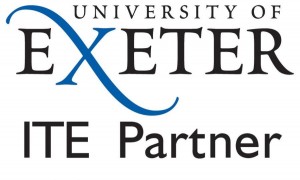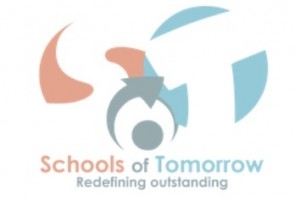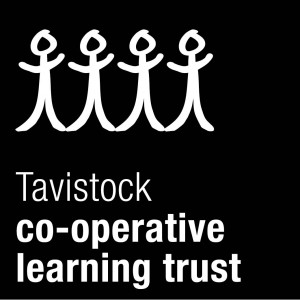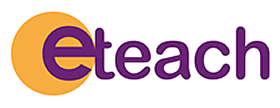It has been an exciting week. We have welcomed back a high proportion of Y12 and Y10 students over the last 5 days, and absorbed many more key worker children than we had previously seen. Our well laid plans have not failed us, colleagues have all pulled together and the systems we have in place are working well. In so many ways it is an utter relief to be doing what we planned for since we shut. The degree of collaboration and creativity matches few other organisations in these times. I know that should we be asked to take other year groups back, then we are certainly ready.
Of course everything is very different for the students. Unsurprisingly, they have been very resilient, and were very keen to follow the new rules in order to gain face to face time with teachers. As I had hoped, the students who have been in school the whole time have shown real leadership, and have been excellent role models for the others returning for the first time. This will perpetuate as more students return. We have learned a lot in the last few weeks about supporting students with remote learning, and we are now better placed than ever before to work alongside learners to diagnose their needs and next steps.
I spoke recently about the genuine positivity that can be found in these new ways of working that have been thrust upon us in the COVID world. I was therefore delighted to read the report published by Hattie and Cox on the effects of school closures on students’ learning. They undertook a large national study of experiences and also compared metastudies from countries that had faced natural disasters such as earthquakes, fires, floods and long educational strikes. They found that the effect size was only -0.12. Effect sizes of less than -0.3 are deemed to be negligible in their impact. -0.12 is unpredictably small, and it begs the question as to why we are spending enormous amounts of time looking at ‘catch up’ (to where?) conversations. These are being driven largely by non-educationalists and the media who actually should stay off the pitch. There have been huge assumptions made about the fact that students are behind: it is possible that students are now further ahead now than they might have been as a result of more individualised learning programmes. A change to schooling in the longer term is worthy of debate, and it must go a little further, I believe, than extending the school day. A rather simplistic and ill thought out approach.
The study by Hattie and Cox has positive messages about change, if we are minded to accept it. They refer to the lack of desire to return to the old normal. The old normal has not changed much in 50 years: • We talk a lot • We ask the questions (about facts) • We see students as recipients • We exam and make students DO things • We sort, group, differentiate • We standardise & slice the curriculum • We age group, we track, we segregate • We sit students in groups, for fixed periods of time • We use bells • We emphasise facts, facts, facts
However, their research over the last few weeks has revealed the following repeating messages. The benefits of remote learning from parents are: • Improved Independence, organisation, time- management and responsibility • More family time together • Support from staff and communication from the school • Being able to help/see what children are learning • Adapted to & enjoying online classes • Learning more about schooling and the curriculum • Reduced travel time • More engaged and task focused • Less distractions from other students • More sleep/time to rest
Student top tens are: • Working at own pace for long or short periods • Time for other interests and hobbies • Not having to get up so early • Being comfortable at home • Being able to spend time with family • Not having to travel • Can do more work – more focused • Fewer distractions • Engaging with friends • Responsibility & accountability for own learning
And teacher gains are: • Adopting new/innovative ways to teach • Development of stronger IT skills • Positive connections maintained with students • Developing self-efficiency/independence in students • Greater flexibility to create and deliver quality lessons • Increased communication/collaboration between staff • Assisted wellbeing/less stressful working at home with own children • Reduced travel time
We know these gains do not hold true for all students, particularly those who struggle with low self-regulation, who are highly dependent on teachers, live in homes that are not safe havens, or who have access to fewer educational resources and activities. In addition, some students have parents with low capacity or desire to engage them in the school work at home. This might mean we invest in better triage and differentiated time in school. It might mean more time in school for some, and less for others. It might mean the growth of online learning and independent learning delivery. Whatever, it is a time to reflect.
I doubt we ever get the chance to debate system wide change on this level. Change is challenging to many. When lives are going well, and sometimes even when they aren’t, many find themselves feeling very attached to the status quo of existence–life as we know it. It is a very human tendency to resist change as though it were possible to simply decide not to do it, or have it in our lives. Of course, the answer is not to go about changing things at random, without regard to whether they are working or not. There is a time and place for stability and the preservation of what has been gained over time. The problem comes when we become more attached to preserving the status quo than to honoring the universal givens of growth and change. For example, if we allow a situation we are in to remain stagnant simply because we are comfortable, it may be time for us to summon up the courage to challenge the status quo.
But change will come and the status quo will go, sooner or later, with our consent or without it. We may find at the end of the day that we feel considerably more empowered when we find the courage to ally ourselves with the force of change, rather than working against it.
Criticism of our profession by those who have little understanding of education is quite difficult to swallow sometimes. But we must never be cowed by it. My father once told me to never accept criticism from someone I would not trust to go to for advice. From the very outset of this crisis, schools have stepped forward to do the right thing for the students in their care and the communities they serve. We can be the commanders of our own destiny if we want it. We need to do what Fullen asserts – to ‘build back better’. Who is ready for that?
















